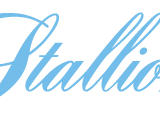KEEPING elite thoroughbreds happy and thriving can be an exacting task and a vital link is the spelling farm where these athletes get the chance to regroup after racing. After a lifetime with horses Colin Branthwaite knows just what they need to keep on winning, bringing all his skills to play on the residents of his Jazcom Thoroughbreds agistment farm at The Oaks to ensure a successful return to the track.
A T LAST count Australia’s active racehorse pool was nearly 36,000. Each of their racecourse appearances is thoroughly assessed, dissected and documented, but often a behind the scenes factor, the spelling farm, can mean the difference between a successful and an unsuccessful campaign.
Generally racehorses, who can have a value up to $1m and more, thrive in the sanctuary of the spelling paddock. However, there is a fine line involved in having them in the right shape, mentally and physically, when they return to work. Among those who have turned this practice into an art form is Colin Branthwaite, who in conjunction with his wife Meagan runs Jazcom Thoroughbreds at The Oaks in the Macarthur region southwest of Sydney.
With 40 years of experience with horses Colin believes he can identify the type of treatment a resting racehorse needs as soon as it steps from the float. “These days I have an instant picture of how I am going to get that horse back to training in the best possible condition,” he said. “It is an intuitive thing because as soon as I set eyes on the horse I know exactly what I’m going to do in the time frame I’ve got.
I like to have all the horses here in premier condition to win when they leave the farm and believe me, there is a bit more to spelling a horse than chucking them a feed.” Colin’s formula that has been employed successfully for horses such as Arabian Gold, Ball of Muscle, Brilliant Light, Crafty Irna, Destiny’s Kiss, Lamasery, Monton, Terravista and more. Since beginning as an agistment farm in 2008 the services provided at Jazcom have been greatly expanded.
Colin and Megan’s operation now includes rehabilitation, growing out of weanlings and yearling sale preparation. “We also provide quarantine facilities for horses being exported to countries such as China, Europe, Japan, New Zealand, the Phillipines and the United States for export companies including International Racehorse Transport.
It is something we have been doing for quite a while but it is not a big part of our business. Now that we are well established we generally have about 100 horses on the place, many for leading owners and trainers.” Although he has always felt he had an affinity with horses Colin was into his teens before he began gathering his experience in the equine world.
Born in 1967 at Sunderland, a coastal city on the mouth of the River Wear in northeast England, he was only two when his father Tony and mother Jennifer decided to migrate to Australia. Originally the family settled in Wollongong, around 100km south of Sydney, where his father found employment in the mines and it was only after moving to The Oaks, a small town near Camden on the edge of Greater Sydney, that Colin was able to develop his penchant for horses.
“It was just in my makeup that I wanted to be around horses. No one in my family, apart from a great grandfather, who was a mounted policeman, had anything to do with horses but I’ve always been crazy about them. When we were at The Oaks I pestered my mother to buy me a horse no one could ride.
She bought him for $100 and he taught me how to ride the hard way . . . he’d throw me off every day. “I’d also ride a bloke’s stock horse which I’d feed and do everything needed with before I went to school. That was when I was about 13 or 14. But it was really while I was going to Camden High School when all the horse stuff started.
In my last year I did work experience at John Poletti’s spelling farm, Parkview Lodge. “At the time Harry Teys, who trained a good stayer named Favoloso, was out there and he taught me quite a lot. Then when I left school at the end of 1982 I virtually began working as a stable hand out at Parkview Lodge the next day.”
That flowed through to joining the staff of veterinarian Chris Hill, who was married to Diane, one of the four daughters of bookmaker Leonard Burke. As well as being a rails bookmaker Lenny was a successful owner and during his days with Chris Hill, Colin would look after his horses when they went to his Foxes Hollow Stud at Oakdale.
“Lenny stood the Kaoru Star horse Reach High at the stud where he had his broodmares and spelled his racehorses. His horses were being trained by Gordon Ray, who was one of the best trainers around and they used to land quite a few plunges, particularly at the Grafton carnival.”
Colin believes that one of the most important lessons he was taught while employed as an assistant to the veterinarian was how to tube drench a horse. “I think it is vital to know how to stomach drench a horse because you can either put the tube into the lungs or the belly,” he said. “If you put it into the lungs they will die.
Chris also taught me how to correctly needle a horse and I also learned about wound care from him.” After two years working alongside Chris, Lenny Burke was in the process of arranging a position for Colin in Theo Green’s stable, just at the time when the trainer decided to retire. However, a position soon became vacant with former jockey Peter Miers at his Randwick stable and Colin stepped into the role.
Coincidentally, on Theo’s retirement, the brilliant sprinter At Sea, who was by Aurealis from the Bogan Road mare Puzzling, was transferred to Peter’s stables. At Sea continued on his winning way and ended his racing career with a total of 17 wins, 13 in stakes races, and nine placings, of which eight were in black type events, from just 33 starts.
By then Colin had heard how the legendary trainer Jack Denham would not rug his horses and felt he wanted an insight into how that was managed. After being with Peter Miers for nearly two years an opening came at Denham’s establishment and he moved across. “It was true,” he said. “In the time I was with Jack he didn’t rug a horse.
While I was there Jack was training a horse named The Austrian for Lenny Burke and some friends. When I decided to take out a training licence in 1989 he gave me The Austrian to train.” Additionally Lenny was instrumental in Colin being set up in new stables at Kembla Grange. “Lenny owned a lot of land where there had been an old motocross track. It was subdivided into what became the Kembla Grange Training Estate and he built my stables there and that’s where I started.”
The Austrian, who was by Aythorpe (IRE), subsequently rewarded the group by winning the Glen Innes Cup as a five year-old. Two other horses Colin trained for the bookmaker, Not Plumb and Austrian Prince, did even better. Not Plumb, who was by The Carpenter (USA), won 10 races, including two in Sydney, with 12 placings and Austrian Prince, who was by Lenny’s stallion Reach High, won seven times and was also placed on 12 occasions.
Not Plumb presented Colin with his first city win at Canterbury on September 25, 1991, when he was ridden by the irrepressible Malcolm Johnston. Other valued winners in his stable included Night After, by Been There, who was a city winner of nine races carrying prominent owner, breeder and then a Sydney Turf Club committeeman Don Storey’s yellow and black quarters.
“Obviously winning races in the city was good but what I really enjoyed was taking horses around to the country cups,” Colin said. “Not Plumb won three AHA Cups in a row at Bega, we won the Glen Innes Cup with The Austrian, and I won a Coonamble Cup with a horse called Fox Road.

I’d travel horses around the country a lot and I’d usually win a race wherever we went.” In 1996 he shifted his operation to Hawkesbury but although training was his passion Colin decided five years later to hand in his licence. At that stage he felt he just was not making sufficient financial headway in his life so he elected to take up a position as foreman for Clarry Conners.
“I thought I’d be better placed if I had a more secure income,” he said. It was an exciting period at Victory Lodge with Viking Ruler, Rose Archway and Belle du Jour being foremost amongst a list of high quality performers in the stable. In his first season with Clarry the Danehill (USA) three year-old Viking Ruler won the AJC Spring Champion Stakes-Gr.1 and Rose Archway, by Archway (IRE), captured the AJC Oaks-Gr.1. Then in 2003 John Singleton’s Belle du Jour, by Dehere (USA), who had won the 2000 STC Golden Slipper Stakes-Gr.1 with a miraculous last-to-first finish, defeated Bel Esprit and Super Impressive in the VRC Newmarket Handicap-Gr.1 at Flemington.
“It was a great experience to be working with Clarry, especially with the young horses, but after two-and-a-half years at Victory Lodge I needed a break from racing and accepted a post at Shipton Lodge Thoroughbreds at Cobbity, near Camden. I ran the spelling and breeding side at Shipton.”
It was there that Colin met Meagan, who was managing the administration at Shipton Lodge. A keen equestrian from her earliest days, who had experience in the practical side of the horse business, Meagan had gone to Shipton after spending 18 years in the financial services industry.
This included time working for Bankers Trust, Westpac Bank and HSBC. Colin’s time at Shipton Lodge was during an extremely difficult period when, in August of 2007, the equine influenza outbreak devastated much of the thoroughbred industry. “We had about 250 horses on the property when E.I. hit,” he said.
“It is not an experience I want to go through again. A bit later on, all the yearlings Nathan Tinkler bought, I think there were about 100 of them, were sent to Shipton Lodge. We broke them in and educated them for Anthony Cummings.” After three years at Shipton Lodge Colin felt he needed to ”chill out” for a while.
He was ringing around seeking some lower-key appointment when the late Andrew Thompson, a veterinary surgeon, said his property at Orangeville was available if he was interested. “Andrew’s plan was to go overseas for a few years. I thought it would be a good idea to lease the property and get a few horses to spell.”
Within two years Colin and Megan had 35 thoroughbreds on agistment, with the first speller coming from Clarry Conners. That prompted them to buy a 30ha (75 acre) property “just down the road” when it became available in 2010. It was given the title of Jazcom Thoroughbreds, coming from the combined names of their children, Jade, Jack and Zoe, and their own of Colin and Meagan.
A fourth child subsequently born is Dylan, who has had the stable barn named after him. As the years have gone by “with a lot of blood, sweat and tears” the infrastructure at Jazcom has been steadily upgraded to the point where there are now 56 individual spelling paddocks with shelters.
There are also multiple large hill paddocks for growing out young horses and a 17 horse stable complex with small hospital yards for rehabilitation. Along the way the Branthwaites have always placed an emphasis on having careful, competent staff, who are able to go about their duties in an efficient, no-nonsense way.
“Meagan and I have placed a top priority on having good staff because our company is based on the belief that the needs of customers are of the utmost importance,” Colin said. “We are firmly committed to meeting these needs and as a result we have found a high percentage of our business is from repeat customers or from referrals. After all the hard work this is very satisfying, we couldn’t wish for a better endorsement.”n



